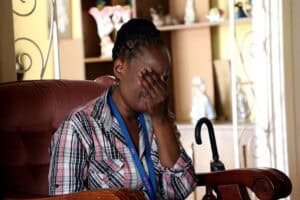A report revealed that in 2019, there were14 million pregnancies with just over five million terminations.

In South Africa, 65% of pregnancies between 2015 and 2019 were unintended, with 36% of them resulting in abortion, according to the United Nations Population Fund (UNFPA) in its State of the World Population 2022 report.
In 2019, that meant 14 million pregnancies with just over five million terminations. It is a silent crisis that faces South African communities.
Research published last year by BMC, an open access research platform, reported that, worryingly, most unintended pregnancies on the continent were in southern Africa.
Between 2006 and 2019, the report said, around 30% of all pregnancies were unwanted.
Last year, Dr Jean Pierre Makelele, deputy resident representative for UNFPA Senegal, said in a statement that the danger lies in young people getting pregnant too soon.
Consequences
“If young people are affected by unintended pregnancies, development is hindered, their education is hindered, their contribution to socioeconomic life is hindered. In short, somewhere along the line, in terms of cost, it is a loss,” he said.
Tshego Bessenaar, director of Southern Africa Programmes at Ibis Reproductive Health, an organisation that agitates for equity and justice, said that comprehensive sexuality education (CSE) is an essential component of reproductive health care for young people.
“Despite the challenges posed by cultural and religious attitudes and a measure of political resistance, there is growing evidence of the importance of CSE in promoting total well-being, health-seeking behaviour, and informed decision-making about overall sexual and reproductive health,” she said.
Ibis has partnered with the Amaze initiative, a project of Advocates for Youth, a global organisation advocating sexual health among youth.
The Amaze initiative intends to harness the power of digital media to provide adolescents and youth globally with free access to medically accurate, age-appropriate, affirming, and honest CSE, in addition to making resources available for parents and teachers.
Bessenaar emphasised that CSE is crucial to fostering gender equality, too. She reiterated that many adolescents and youth are at risk of unintended pregnancies, sexually transmitted infections (STIs), and gender-based violence, including hate crimes and marginalisation of those who identify as LGBTQ+.
NOW READ: Conflicting views on teen pregnancy emerge
Investment
She echoed Unicef’s position that addressing high rates of teenage pregnancies in Africa requires investing in CSE, prioritising girls’ education, conducting community sensitisation, promoting health education, and ensuring sufficient medical infrastructure.
Comprehensive sexuality education is not an optional conversation to have with adolescents and youth, but a necessary one. Digital resources will make it easier.
“It is a pathway to empowerment and healthy communities,” Bessenaar said.
She added that Amaze aligned with family values such as honesty, respect, self-determination, and taking responsibility for oneself.
“It encourages a safe and supportive environment for young people to learn, grow, and occupy spaces that foster open and honest conversations about sexuality and relationships,” she said.
CSE is not about promoting a particular agenda or undermining religious, cultural, or traditional values, Bessenaar said.
Instead, it is about providing young adolescents with accurate information and motivating them to make informed decisions about their reproductive lives and build healthy relationships.
ALSO READ: Sex education: ‘Amaze’ project to spread awareness
Support Local Journalism
Add The Citizen as a Preferred Source on Google and follow us on Google News to see more of our trusted reporting in Google News and Top Stories.






